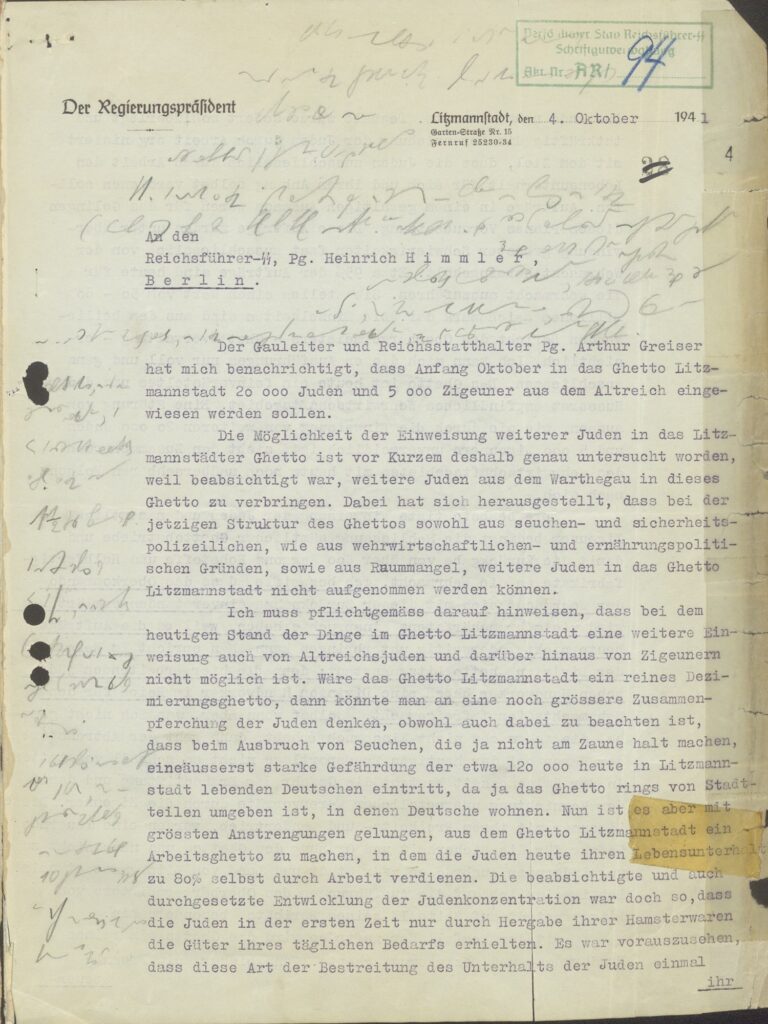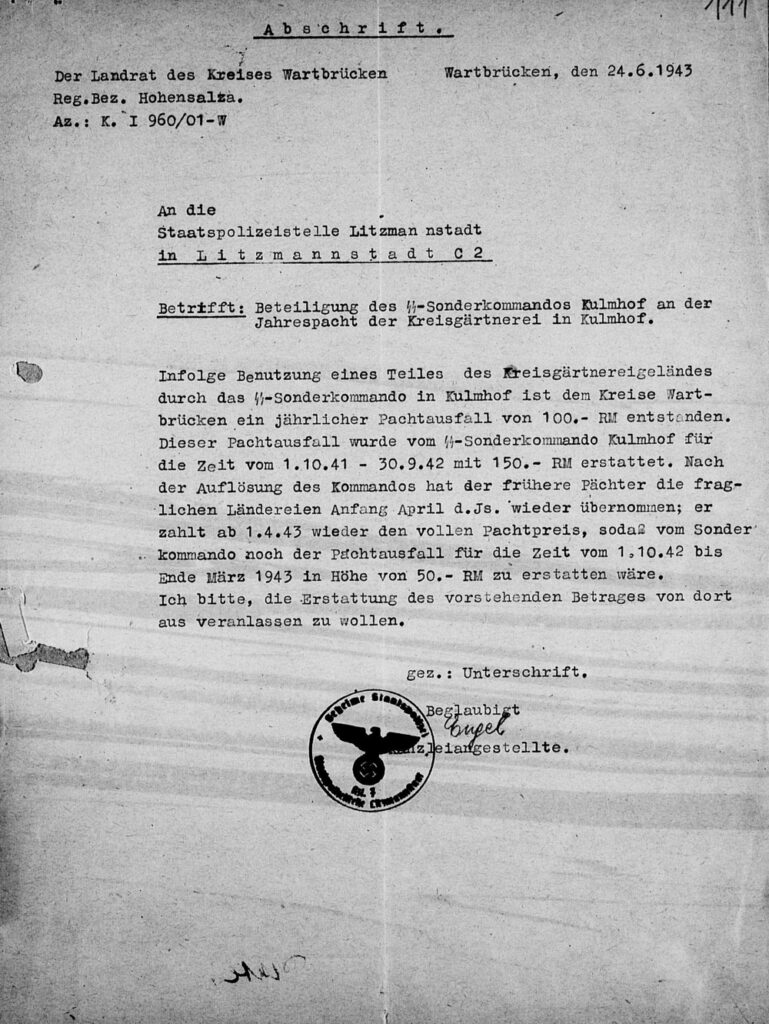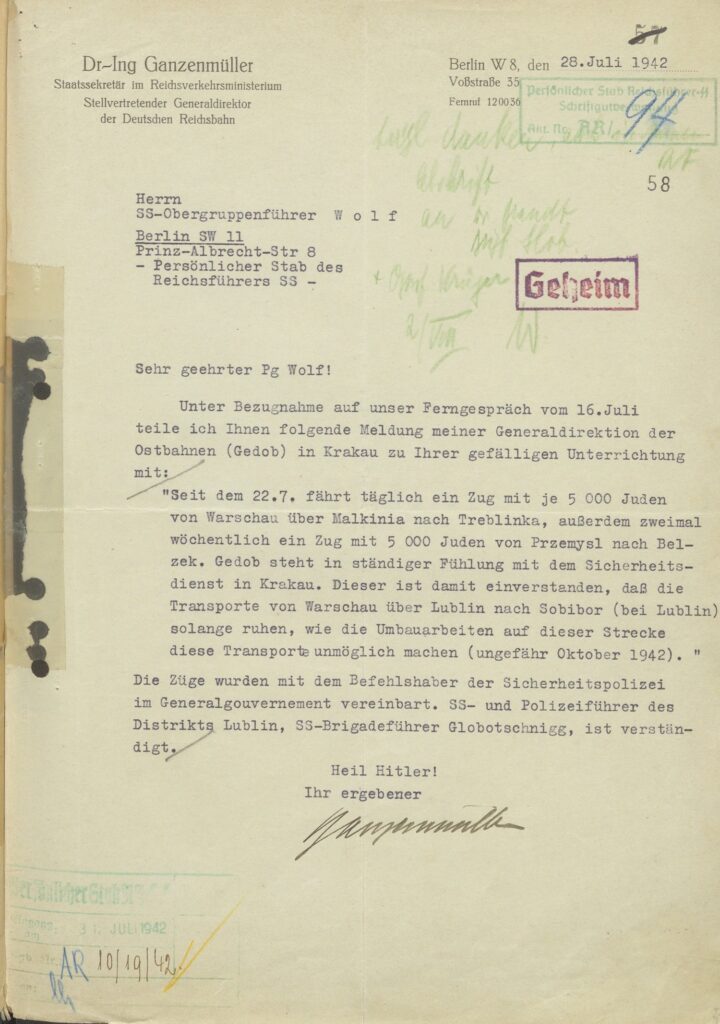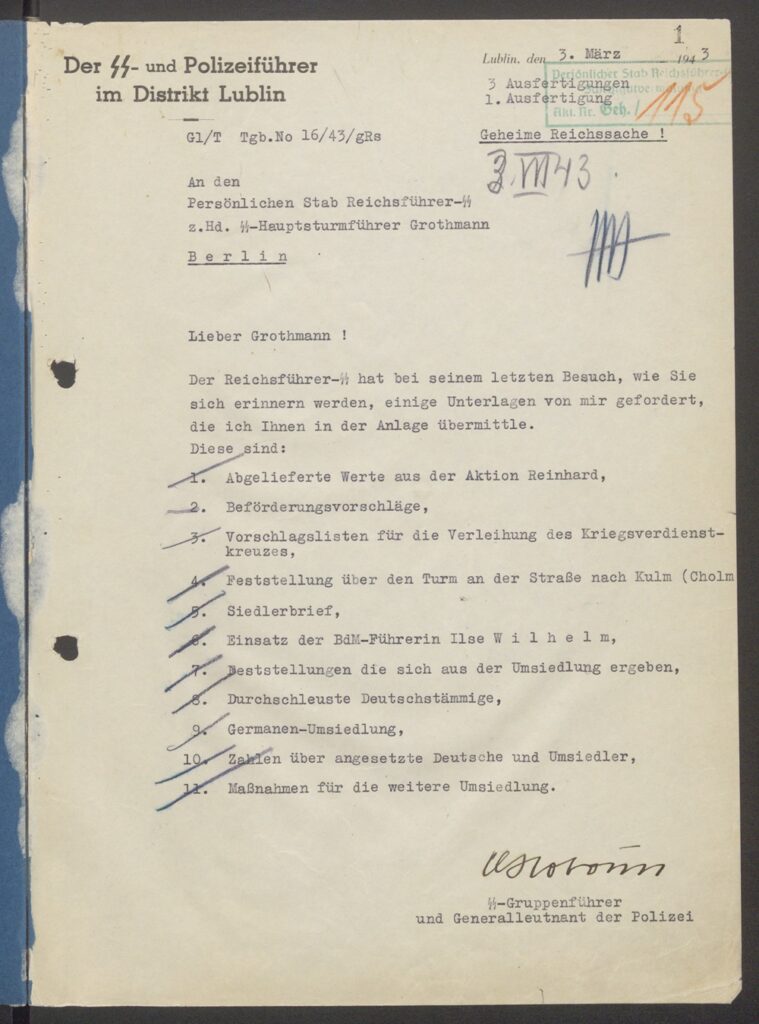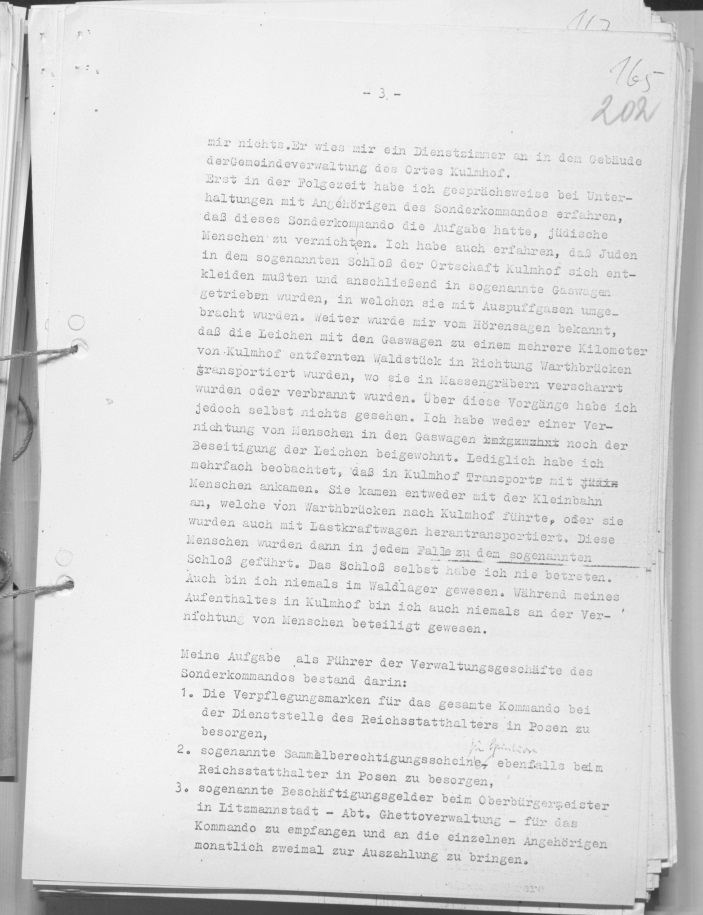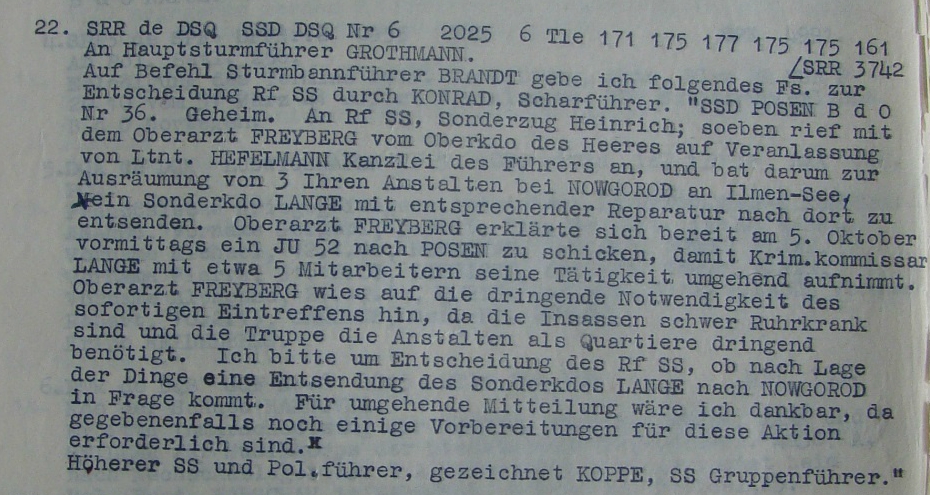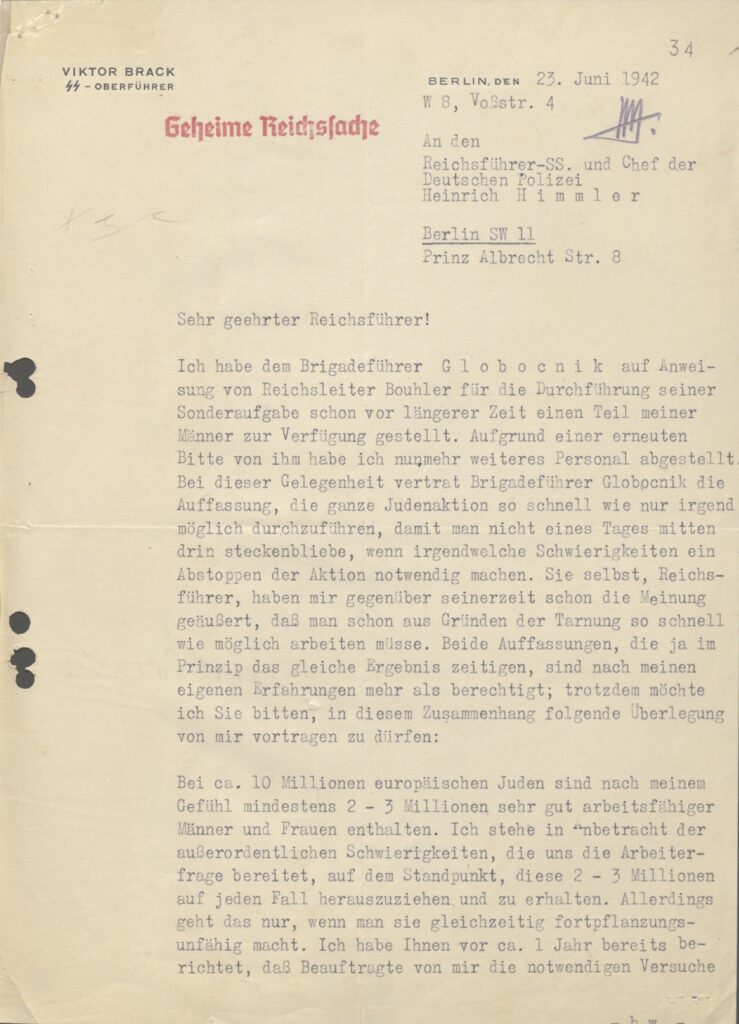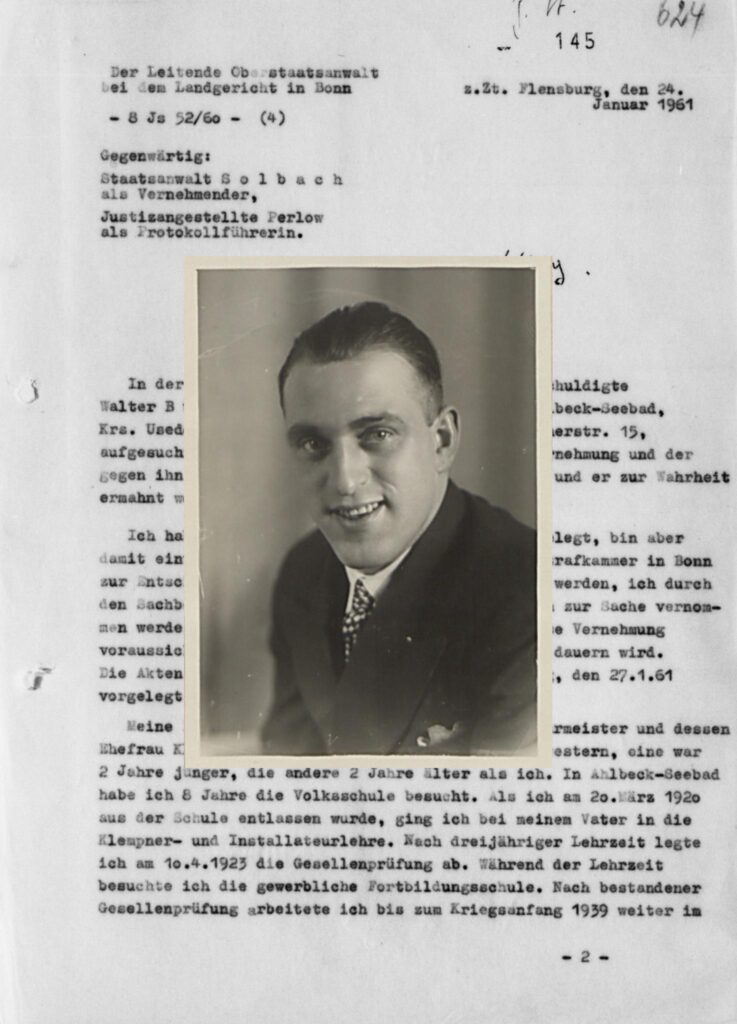1941-10-04 Letter from Uebelhör to Himmler: “If the Ghetto Lodz were a pure extermination ghetto…”
On October 4, 1941, the Government President of Litzmannstadt, Friedrich Uebelhoer, wrote to Reichsführer-SS Heinrich Himmler, addressing the planned transfer of “at least 20,000 Jews and 5,000 Gypsies” to the Litzmannstadt Ghetto. The letter explained the ghetto’s current capacity issues (“if the Litzmannstadt Ghetto were a pure extermination ghetto, then one could consider even greater crowding of the Jews”) and the potential risks to the surrounding German population. In the end, he declared that he “must decline responsibility for the consequences in full” if the deportations of additional Jews and the Sinti and Roma will be carried out.
